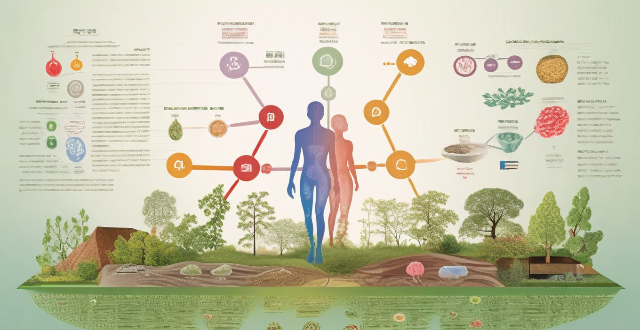Cognitive Effects

Is there a relationship between exercise and cognitive function ?
Exercise is a potential intervention for enhancing cognitive function across the lifespan. The relationship between exercise and cognitive function is complex and multifaceted, involving various aspects of cognition and different types of exercise. Long-term exercise interventions have consistently shown positive effects on cognitive function, particularly in older adults. Different types of exercise may influence specific cognitive functions differently, and the underlying mechanisms behind these effects are still being explored. By incorporating regular physical activity into our daily routines, we can potentially enhance our cognitive function and overall well-being.

Does exercise have different effects on cognitive function at different ages ?
This article explores the relationship between exercise and cognitive function across various age groups. It highlights the benefits of exercise for children's cognitive development, adults' reduced risk of cognitive decline, and older adults' slowed cognitive decline. Examples of suitable exercises for each age group are provided, including playing sports for children, aerobic activities for adults, and walking or cycling for older adults. The article concludes that incorporating physical activity into daily routines at any age is crucial for maintaining cognitive health and overall well-being.

Can exercise reverse cognitive impairment caused by neurological disorders ?
Exercise may help reverse cognitive impairment caused by neurological disorders. Studies have shown that exercise can improve cognitive function in people with Alzheimer's disease, Parkinson's disease, and stroke. Exercise may also reduce inflammation, improve balance and mobility, and increase overall quality of life for people with neurological disorders. More research is needed to fully understand the effects of exercise on cognitive impairment caused by neurological disorders.

How does exercise affect brain function and cognitive abilities ?
This article discusses how regular physical activity positively impacts brain function and cognitive abilities by improving blood flow, boosting neurotrophic factors, enhancing plasticity, and reducing inflammation. It emphasizes the importance of incorporating exercise into one's lifestyle for maintaining and enhancing cognitive health.

How does exercise influence neuroplasticity and cognitive function ?
Exercise has a positive impact on neuroplasticity and cognitive function by increasing blood flow, releasing growth factors, reducing inflammation, improving attention and concentration, enhancing memory, and slowing cognitive decline. Incorporating regular physical activity into your lifestyle can have numerous benefits for your brain health and overall well-being.

How does exercise improve cognitive function ?
Exercise plays a crucial role in enhancing cognitive function, including memory, attention, and problem-solving skills. It promotes brain plasticity, increases blood flow and oxygenation, reduces inflammation, and improves sleep quality. Incorporating exercise into your routine can be done through various activities such as running, swimming, or yoga. Start small and gradually increase intensity and duration, find enjoyable activities, incorporate mindful movement, make it social, set realistic goals, and consult with a professional if needed.

How does physical activity affect children's cognitive development ?
This article discusses the positive impacts of physical activity on children's cognitive development, including improved attention and memory, enhanced executive functioning, increased learning abilities, reduced stress and anxiety, and promoted socialization and teamwork skills. Regular exercise can enhance blood flow to the brain, strengthen neural connections in the prefrontal cortex, stimulate neurogenesis, release endorphins, and provide a healthy outlet for releasing energy and emotions. Encouraging children to engage in regular physical activity can have long-lasting positive effects on their overall well-being and success throughout life.

Can regular exercise prevent cognitive decline in older adults ?
Regular exercise may help prevent cognitive decline in older adults by promoting neuroplasticity, improving blood flow to the brain, and reducing inflammation. Multiple studies have found positive associations between physical activity and cognitive function in this age group. Guidelines recommend aerobic exercise, resistance training, and activities that improve flexibility and balance. Making exercise a regular part of daily life is key for maintaining cognitive benefits over time.

How important is sleep for optimizing concentration and cognitive functions ?
The article discusses the significance of sleep for enhancing concentration and cognitive functions. It states that adequate sleep is crucial for improving attention span, alertness, memory consolidation, learning capacity, problem-solving abilities, and decision-making skills. The benefits of getting enough sleep include improved productivity, better performance, reduced stress levels, and enhanced mood. Therefore, prioritizing sleep as part of a healthy lifestyle is essential to optimize concentration and cognitive functions.

Can exercise compensate for poor sleep quality in terms of cognitive function ?
The article discusses the importance of sleep for cognitive function and whether exercise can compensate for poor sleep quality. While exercise has benefits for cognitive function, it cannot fully replace the memory consolidation and emotion processing that occurs during sleep. Chronic sleep deprivation can lead to long-term changes in brain structure and function that may not be reversible through exercise alone. To maintain optimal cognitive function, both regular physical activity and good sleep habits are essential.

What are the long-term effects of consistent exercise on mental health ?
Consistent exercise has a multitude of long-term effects on mental health, including improved mood, reduced anxiety and stress, better sleep, increased self-esteem, enhanced cognitive function, and social interaction. These benefits make regular physical activity a powerful tool in maintaining good mental health.

Is there a link between physical fitness and cognitive function ?
The text discusses the potential link between physical fitness and cognitive function, citing research that suggests a correlation. It defines physical fitness as the ability to perform aspects of sports or occupations, obtained through proper nutrition, exercise, and rest, and cognitive function as mental processes involving perceiving, remembering, reasoning, problem-solving, understanding, judging, and learning. The text mentions studies that suggest enhanced physical fitness can improve cognitive function in older people without known cognitive impairment and that physical fitness could be a better predictor of cognitive performance than physical activity. It also discusses potential mechanisms behind the relationship, including increased blood flow to the brain and the release of chemicals that promote cell growth, improvement, and survival. Finally, it notes the potential implications of this research for individual and societal health.

What are the implications of cognitive development theories in educational psychology ?
Cognitive development theories have significant implications in educational psychology. These theories help educators understand how children think, learn, and process information. By applying these theories, educators can create effective learning environments that cater to the cognitive needs of their students. Piaget's theory suggests that children progress through four stages of cognitive development and emphasizes the importance of hands-on activities and constructivist learning. Vygotsky's sociocultural theory highlights the role of social interaction and cultural tools in cognitive development. Information processing theory focuses on working memory, cognitive load, and metacognition. By understanding these theories, educators can enhance student learning and promote cognitive growth.

What role does exercise play in maintaining cognitive function in old age ?
Exercise is crucial for maintaining cognitive function in old age, with benefits including improved blood flow, reduced inflammation, and increased neuroplasticity. Aerobic exercise, resistance training, and activities like yoga and tai chi are all beneficial. Incorporating physical activity into your daily routine can help keep your mind sharp as you age.

How long after starting an exercise routine can improvements in cognitive function be expected ?
The text discusses the timeline for improvements in cognitive function after starting an exercise routine. It mentions that immediate benefits such as enhanced mood, improved attention and focus, and increased energy levels can be noticed within 1-3 months. Mid-term benefits like enhanced memory retention, improved executive function, and increased creativity can be observed within 3-6 months. Long-term benefits such as slowed cognitive decline, reduced risk of cognitive disorders, and sustained improvements in overall cognitive performance can be achieved after six months or longer. The text emphasizes the importance of maintaining a consistent exercise regimen over the long term for sustained enhancements in various aspects of cognitive function.

What are the harmful effects of chemicals on human health ?
Chemicals can have harmful effects on human health, affecting various systems in the body. Short-term exposure to chemicals can cause irritation of the respiratory system, increased heart rate and blood pressure, headaches, dizziness, and confusion. Long-term exposure to chemicals can lead to chronic bronchitis, emphysema, lung cancer, coronary artery disease, heart failure, stroke, neurological disorders, memory loss, and mood disorders. It is essential to be aware of the potential harmful effects of chemicals and take necessary precautions to protect our health.

Is there a specific type of exercise that is most effective for enhancing cognitive abilities ?
Exercise has been shown to have numerous benefits on cognitive abilities, but is there a specific type of exercise that is most effective? Aerobic exercise improves blood flow and reduces stress, while resistance training boosts BDNF levels and enhances executive function. Combination exercises provide a comprehensive workout for the body and brain. Finding an exercise routine that you enjoy and can stick to is key to reaping the cognitive benefits over time.

What are the effects of stress and pressure on an athlete's performance, and how can sports psychology mitigate these ?
Stress and pressure can have both positive and negative effects on an athlete's performance. In small amounts, stress can increase focus and motivation, leading to improved performance. However, excessive stress and pressure can have detrimental effects on an athlete's physical and mental health, as well as their overall performance. Sports psychology is a field that focuses on using psychological techniques to improve athletic performance and enhance overall well-being. Sports psychology professionals work with athletes to develop strategies for managing stress and pressure, improving mental toughness, and enhancing overall performance.

Does exercise influence emotional regulation and mental well-being, which in turn affects cognitive processes ?
The article explores the relationship between exercise, emotional regulation, mental well-being, and cognitive processes. It suggests that regular physical activity can positively impact emotional regulation by reducing stress levels, improving self-esteem, and providing a healthy outlet for negative emotions. Exercise also contributes to improved mental well-being by alleviating symptoms of depression and anxiety, promoting relaxation, and providing opportunities for social interaction. These factors, in turn, influence cognitive processes such as attention, memory, problem solving, and decision making. Overall, the article concludes that incorporating exercise into daily routines can have numerous benefits for overall health and well-being.

Can team sports or group exercises provide additional cognitive benefits compared to individual activities ?
Team sports and group exercises provide cognitive benefits such as improved social skills, enhanced cognitive functioning, increased self-esteem and confidence, and personal growth opportunities. Participating in these activities helps individuals develop strong communication skills, cooperation, conflict resolution abilities, attention and focus, decision making skills, memory retention, and a sense of achievement. These skills can be applied in all aspects of life, leading to personal growth and development.

How does exercise physiology contribute to understanding the aging process and its effects on physical performance ?
Aging is a complex biological process that affects all living organisms, involving a gradual decline in physical and mental functions over time. Exercise physiology, the study of how the body responds to exercise, plays a crucial role in understanding the aging process and its effects on physical performance. As we age, our muscle mass and strength tend to decrease, cardiovascular fitness reduces, and joint pain and stiffness become more common. Exercise physiology helps us understand how the body adapts to regular physical activity at different stages of life, preventing age-related declines and promoting healthy aging through targeted exercise programs.

What are the most common side effects of vaccines ?
The most common side effects of vaccines are pain and swelling at the injection site, fever and chills, fatigue and headaches, and nausea and diarrhea. These symptoms are usually mild and last for a few days to a week. To manage these side effects, you can take over-the-counter pain relievers, apply ice packs, drink plenty of fluids, get enough sleep, and eat a healthy diet. If you experience severe side effects such as an allergic reaction or persistent symptoms, it is important to seek medical attention immediately.

Are certain durations or intensities of exercise more beneficial for cognition than others ?
Exercise has been shown to improve cognitive function, memory, and mental health. Both short-term and long-term exercise can enhance different aspects of cognition. Moderate-intensity exercise is most beneficial for older adults, while high-intensity exercise may also be advantageous but should not exceed certain levels. Aerobic exercise, resistance training, and balance exercises all contribute to cognitive improvement. Individual differences should be considered when determining the optimal exercise regimen for cognitive enhancement.

Can listening to music help or hinder concentration ?
Listening to music can both help and hinder concentration, depending on factors such as the type of music, individual preferences, and the task at hand. Positive effects include increased motivation, improved mood, reduced stress, and enhanced creativity. Negative effects may include distractions, cognitive overload, emotional responses, and individual differences in musical preferences. To optimize the use of music while working or studying, consider choosing the right genre, adjusting volume, taking breaks, personalizing playlists, and experimenting with different types of music.

What are the side effects of the COVID-19 vaccine ?
The COVID-19 vaccine has been a topic of great interest and concern in recent months. While many people have received the vaccine with minimal side effects, others have reported experiencing more severe reactions. The most common side effects reported after receiving the COVID-19 vaccine include pain, redness, or swelling at the injection site, fatigue, fever, headache, muscle pain, nausea, rash, chills, dizziness, and joint pain. However, there have also been reports of serious side effects associated with the COVID-19 vaccine, including blood clots, angioedema, myocarditis, and Guillain-Barré Syndrome. It is important to note that these cases are extremely rare and far outweighed by the benefits of receiving the vaccine.

How does the threat of climate change influence our cognitive processes and decision-making ?
The influence of climate change threat on cognitive processes and decision-making is significant. It can affect perception of risk, trigger emotional responses, and alter information processing. Additionally, it shifts priorities in decision-making, necessitates long-term planning, and requires collaboration among various stakeholders.

How does exercise impact memory and learning ?
Exercise has a positive impact on memory and learning by increasing blood flow, releasing neurotrophic factors, reducing inflammation, alleviating stress, and improving sleep quality. Incorporating physical activity into daily routine can enhance cognitive functions.

What are the effects of poor sleep on endurance sports ?
Poor sleep can negatively impact endurance sports performance by decreasing athletic performance, impairing cognitive function, increasing the risk of injury, and elevating stress levels. Endurance athletes should prioritize getting enough high-quality sleep each night to optimize their physical and mental abilities while reducing their risk of injury and illness.

Are there any potential side effects of switching to a gluten-free diet ?
Switching to a gluten-free diet can have several potential side effects, including nutrient deficiencies, digestive issues, weight gain, headaches and fatigue, and higher cost. It is important to be aware of these potential side effects and take steps to ensure adequate nutrition on a gluten-free diet. Consultation with a healthcare professional is recommended before making any significant changes to your diet.

What are the long-term effects of youth sports on mental health ?
Youth sports can have both positive and negative effects on mental health, including increased self-esteem, improved social skills, and reduced stress levels. However, pressure to perform, overtraining, injuries, bullying, and dependence on sports for identity can also have negative impacts. It is important for adults involved in youth sports to be aware of these potential effects and take steps to foster the positive ones while mitigating any negative impacts.